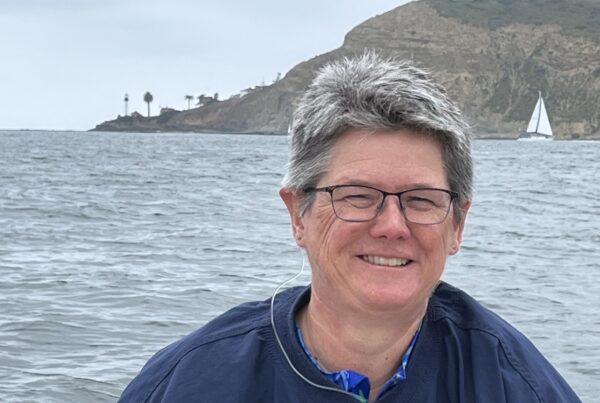My mother was a Methodist. This always struck me as an odd arrangement. She didn’t grow up Methodist. Her people were agnostic, to put it charitably. I really don’t think she had a clue who John Wesley was, and if she had any knowledge of the tenets of Methodism, it was never expressed in my hearing. Health issues kept her from worshiping regularly, and she refused to watch TV evangelists, whom she thought of as the pro wrestlers of religion, but if you asked about her religious affiliation, she’d say Methodist. My father’s side of the family was Reformed Church folk, but Mom was a Methodist, and I could never quite figure out why.
Until one day, late in her life, she and I were driving, and we passed a mailbox with the house number printed on it in white letters. Mom said, “Oh, look—154. That was my number.” I said, “Your number?”
If my love for God is genuine, it can’t stay in church.
My mother grew up in an orphanage. She explained that every child at the orphanage was assigned a number, and her number was 154. Each child was given a hairbrush, a toothbrush, a drinking glass, two sheets, and one blanket, and your number was printed on everything. She said the orphanage wasn’t so bad. You got three meals a day, which was more than a lot of people had during the Depression. And some nice ladies at a nearby church saw to it that each child at the orphanage got an orange and a candy cane for Christmas. “It was a Methodist church,” she said.
And then I understood.
St. John says, “Beloved, since God loved us so much …” and we expect the second half of that verse to say, “we should love God back.” But it says, “we also ought to love one another” (1 John 4:11). It’s as though God sets our neighbors before us, in his stead, and says, in effect: “The love you feel toward me, express to them.”
I know this is obvious, but somehow I keep forgetting it, and I have to stop and remind myself: If my love for God is genuine, it can’t stay in church; it has to move beyond the sanctuary walls and spread out into the community, especially to the least and the last, the widows and orphans. It’s not all that complicated. Sometimes all it takes is an orange and a candy cane.
Lou Lotz
Lou Lotz is a retired pastor who lives in Hudsonville, Michigan.



